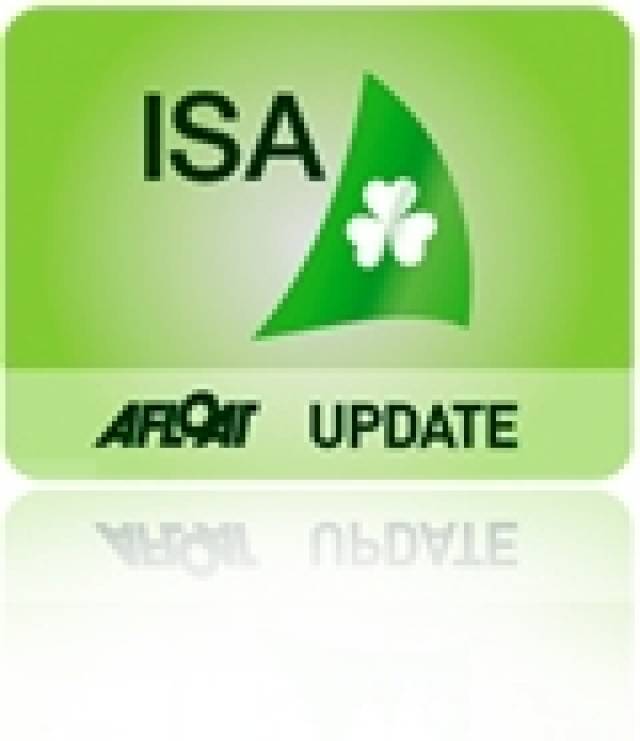#smallcraftregister – A voluntary small craft register (SCR) operated by the Irish Sailing Association (ISA) since 2008 has been shut down. The decision to close the register was made by the new ISA board almost immediately it took charge of the association two months ago.
According to Afloat.ie sources, the register was closed because it operated without the approval of Government who are in the process of buildfing an official register.
Until recently the ISA website claimed 'the ISA SCR provides an accessible and co-ordinated system for identifying recreational vessels' but in the past month boat owners have received notification explaining that the register has been closed. Details of the register have been remove from the ISA site.
Most affected by the shutdown are cruising sailors and boat owners who sailed boats from Ireland to foreign jurisdictions where documentation is required. The decision leaves registered sailors with 'worthless documentation', according to cruising sailors. It also makes it impossible for new applicants to register.
The ISA scheme ran in parallel to a registration service offered by the Government which is the full Ship Registry process.
Although, the scheme had been informally described by users as 'similar to the UK's Small Ships Register SSR' there was never any official recognition. It is understood, however, that in the context of safety on the water, the ISA register had been viewed as a useful safety registration tool.
Afloat sources indicate that the Department of Transport is close to announcing a new register for boats, one that Minister for Transport Leo Varadkar has previously signalled.
Until now, official registration has been seen by small boat owners as expensive, lengthy and in some cases (because lack of proof of VAT or unbroken proof of ownership) impossible.
The ISA has been able to obtain an extension of one year for current Small Craft owners on the register but new applicants are not accepted.
Interest groups such as the Cruising Association of Ireland (CAI) are seeking new ways to deal with the situation. Commodore John Leahy recently noted online:
'The CAI will continue to work with the ISA to see if we can get the authorities to agree to a permanent extension of the scheme, and to reduce the burden of paperwork and requirements to more accurately reflect the reality of small craft ownership'
The recently elected ISA board is a new broom sweeping clean. It has vowed to shake up the running of sailing's national governing body. Already, its new president David Lovergrove has completed an extensive strategic review process and is on course to publish a new plan for the ISA later this summer.
The death of the ISA Small Craft Register comes ahead of a raft of new European wide legislation that will affect boat owners in Ireland that inlcudes compulsory registration for vessels over seven metres. In Ireland such matters will be dealt with by the Mercantile Marine Office (MMO, part of the Maritime Safety Directorate of the Department of Transport, Tourism and Sport. The function of the MMO have their statutory origins in two pieces of legislation, the Merchant Shipping Act, 1894 and the Mercantile Marine Act, 1955. There are numerous functions and duties imposed on both the Superintendent and the Mercantile Marine Office in these Acts.
Meanwhile, a Dublin company called Boat Regstration Services run by Bronwyn O Donnell offers a service to guide through what can be a complex process for the small boat owner.
Costs vary from around €1250 for a 'clean boat' with full paperwork back to new, to bigger fees if you have no title papers or VAT proof.
A reader has been in touch to add the following:
The ISA or IYA as it was known then offered this service since the 1970s, when it was known as the 'Certificat d'Identite et Origine'. En Francais, because Irish sailors encountered the biggest problems with proving ownership in certain parts of France.
The certificate was intended to make up for the lack of an SSR in Ireland and it worked very well – some sailors circumnavigated with no other documents.
A lot of the problems were caused by the sailors being bolshie and obstructive. There was more than once in those times the advice was that, prior to the boarding by officials, the sailor should put all documents on the chart table alongside the bottle of Paddy (opened). When they did this, there were very few problems.
Ad hoc, yes, no legal status, yes, but effective – very in most cases. A real Irish solution to an Irish problem!
Sad to see it go!































































